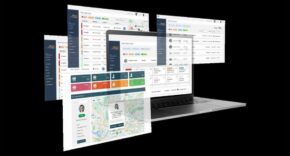
We are facing a worldwide healthcare skills shortage. The World Health Organization is projecting a global shortfall of 10 million health workers by 2030. While health services battle with the challenges of the labour shortage, there is an urgent need for greater efficiency to relieve demand and ensure quality patient care.
In the UK, on top of staff shortages, the National Health Service (NHS) is under immense pressure to cope with an ageing population, and a post-pandemic backlog. In fact, this year it was revealed that most key NHS targets have been missed for at least seven years across the UK. It’s time for a more technology-driven approach.
AI decision support could provide significant benefits that promise to help the NHS meet these targets and improve patient outcomes by assisting with diagnosis and minimising bottlenecks. But achieving these benefits remains a challenge as the NHS continues to lag in its digitalisation journey.
So, where is the UK health system in its digitalisation journey and how can it implement AI to transform patient care?
Data is gold, if you can access it
One of the greatest challenges the healthcare sector faces is managing – and taking advantage of – the colossal amount of data generated daily. Data is worth its weight in gold, but only if it can be shared and easily accessed by healthcare staff. For many years the complex nature of having siloed departments and legacy IT systems has led to an ever-growing digital data gap.
Plans to connect and digitise services are increasing, with aims for 100% of NHS trusts to have electronic health records by March 2025. Digitising health records is an essential springboard for utilising data for AI capabilities.
Disjointed IT systems have made it cumbersome and time-consuming to share information among employees and other healthcare institutions, resulting in a lack of overview and insufficient knowledge sharing.
If we can get the data right, we will soon see the NHS benefit in these four core areas:
Predictive analysis
AI-enabled decision support can enable real-time data-backed decision-making in time-critical moments. For instance, AI can provide predictive analysis from datasets to identify patterns and trends in patients. This provides support for healthcare staff to anticipate capacity needs – easing pressure and increasing capacity.
An example of this AI application is being able to predict patient re-admission rates and possible high-risk patients within intensive care units (ICUs). In 2022, in the midst of the pandemic, the NHS introduced AI-powered software which accurately predicts when patients will be ready to leave the hospital upon their arrival in A&E to help solve the bed-blocking crisis. The software analyses data including age, medical conditions and previous hospital stays to estimate how long a patient will need to remain. This patient flow management system allows for a greater overview and therefore improved capacity planning and allocation of hospital beds.
AI-assisted diagnosis
AI-powered decision-making can also play a helping hand in a faster diagnosis process for patients. AI is already making a significant impact across the healthcare sector in diagnosing conditions earlier and supporting doctors with diagnoses.
For example, in the assessment of breast cancer imaging, using AI to help read mammograms has helped find 20% more cancers than the standard double reading by two radiologists. This algorithm replaces the second doctor and supports the first doctor in the decision-making process of the diagnoses. While increasing the accuracy of the diagnoses for the patient, it also frees up the second doctor to see other patients.
AI tools are still evolving and they’re nowhere near having true human-level intelligence, according to a CNBC report. However, even the current level of advancement would provide massive benefits in assisting doctors with the diagnosis process and decreasing administration time, allowing doctors to focus on patient care.
Minimising bottlenecks and mitigating crises
Processes that leverage AI for decision-making can also aid crucial efforts to improve prevention strategies, alleviating pressures on the healthcare system in the long term and guarding against future crises.
In terms of operational efficiency, instant data analysis and predictive forecasting of patient management flows are helping healthcare professionals create a more accurate overall picture of patients’ journeys from their arrival to leaving the hospitals. On the other side of the coin, AI-powered algorithms can assist in the early detection of diseases as well as support the decision-making process of diagnoses and in some cases free up doctors for other patients simultaneously.
An AI-powered future
Whilst we are only in the infancy of how AI will continue to shape our healthcare sector, it’s clear that it is already minimising a range of obstacles within the UK healthcare system.
With continued digitalisation, we can achieve an even more integrated system that allows for further innovation – driven by instant data analysis of operations and easy access to patient data between departments.
But to successfully implement change across the entire healthcare service it will require collaboration between the NHS, technology developers and policymakers, to fully reap the benefits of these technologies.
Written by Richard Davies, Managing Director – Netcompany












